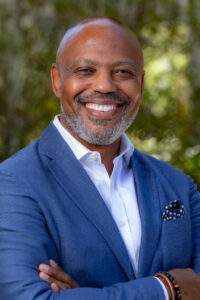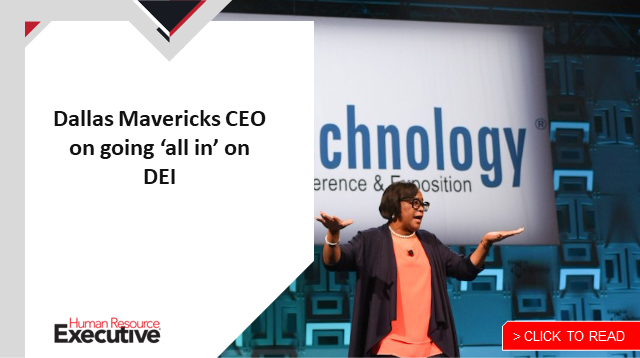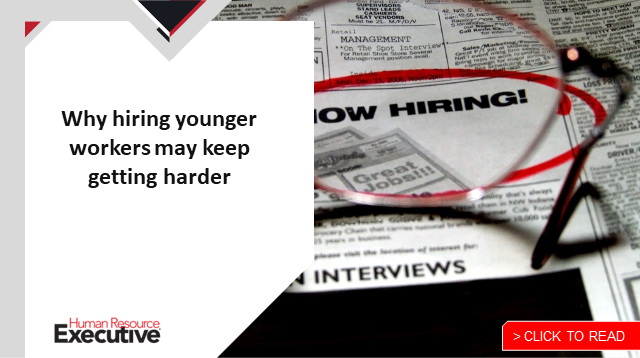When Mark Welch joined Farmers Insurance last September, he immediately recognized one reality that would be welcome news to most modern CHROs: Diversity, equity and inclusion were inherently part of company culture.
But, as of then, the organization hadn’t built out a clearly defined DE&I strategy. That’s where Welch comes in. As the chief people and diversity officer, Welch—who came to Farmers after more than two decades at wealth management firm Northern Trust Solutions, where he most recently served as CHRO of the North American branch—is focusing on formalizing the insurance giant’s approach to DE&I, alongside leading its entire people function.
It’s a big job, but one that Welch says gives him a unique opportunity—to envision where the company wants to go when it comes to DE&I, while having the vantage point as CHRO to make it happen. Here’s what else he had to say in a recent interview with HRE:
HRE: You spent more than 20 years with Northern Trust. Why the move now?

Welch: There’s no ideal time to make a change. I was very fortunate to have had a diversity of experiences in one organization, which you often can only get from multiple organizations. But there is a risk of staying with one organization forever; at some point, you have to question whether you’re adding as much value as you could and if you could have the opportunity to add value in different ways to change another organization. So, that was the question I asked myself. And it’s been a wonderful experience thus far. It was really important to go to an organization that I felt aligned with my values. Farmers definitely is that. There’s a strong focus on customers, on doing the right thing, a strong ethical base, on always acting with integrity. And really, a sense of family; people treat each other like they’re part of a family. There’s never an ideal time but this made sense to me at the time. And the geography didn’t hurt; I’m back in California, where I’m originally from. So, the stars aligned.
HRE: Your title at Farmers Insurance includes both People & Diversity. How do those focuses work together?
Welch: My point of entry into HR was as chief diversity and inclusion officer [at Northern Trust]. One of the things I’ve found is that these roles are often designed to lead through influence; there isn’t usually ownership over the tools and resources you can execute against. One of the things I thought about in taking the role here at Farmers was that it’s important to, one, not just have a mandate around doing this work but also to have lines of ownership and accountability to actually execute against that mandate. So, the idea was to combine the two roles into one and have it in the C-suite. There had not been this role before, so we thought the first iteration should be at the executive level. I have the traditional HR focus—talent acquisition, talent management, HR service center, all of the things of that nature—but we also have diversity and inclusion embedded there.
HRE: What are the DE&I strengths of Farmers Insurance that were already in place when you arrived? And where is there the most room for improvement?
Welch: The culture of our organization is such that diversity and inclusion have always been at the heart; it’s a foundational, core value for us. We believe people of different backgrounds add great value to the organization and work to create space so that people can bring their whole selves to work. Those were already embedded in the culture despite the fact that we hadn’t had someone dedicated to leading diversity in the organization. I would characterize it as good intent and a lot of good action without a fully formalized strategy. So, now we have the opportunity to take that intent and operationalize it. But that core strength is already there, and everyone is committed to it.
 In terms of opportunities, we’re focused on constant growth and, because people have already bought into [DE&I], it’s less transformative than it is the incremental, day-to-day work of getting to the next possible best thing—and making sure everyone is taking the appropriate actions. That means building culture to continue and sustain the effort and building out the infrastructure of our team and figuring out how to execute against [the strategy] among the broader team. We do have a couple of people teams focused on diversity and inclusion as the core of their job, and they’re building out that strategy for the long-term to ensure we have the tools and resources we need to move the organization forward.
In terms of opportunities, we’re focused on constant growth and, because people have already bought into [DE&I], it’s less transformative than it is the incremental, day-to-day work of getting to the next possible best thing—and making sure everyone is taking the appropriate actions. That means building culture to continue and sustain the effort and building out the infrastructure of our team and figuring out how to execute against [the strategy] among the broader team. We do have a couple of people teams focused on diversity and inclusion as the core of their job, and they’re building out that strategy for the long-term to ensure we have the tools and resources we need to move the organization forward.
HRE: You’ve almost completed your first year at Farmers. What has surprised you most about the organization?
Welch: It’s less of a surprise and more that I’m glad to have had it confirmed: When looking outside an organization, as you’re going through the recruitment process, everyone [within the organization] tries to put their best foot forward in terms of how they’re positioning the organization, but I’m really pleased that, at Farmers, reality matches the theory. The focus on customers, the candor people need to have psychological safety, the incorporation of different ideas and diverse backgrounds and people—all of that is really there. One of the other things—and this isn’t actually a surprise—but we’re approaching our 100th anniversary as an organization, and despite the fact that we’re almost 100, we still have such an appetite for innovation and evolving the organization positively. It’s stronger than I even expected because we’re a successful business enterprise and it can be easy to rest on your laurels—but the reality is our people are always looking for opportunities to continue to drive efficiencies for our customers, our organization.
HRE: In what ways has the pandemic reshaped your approach to people management?
Welch: I don’t know that I would say reshaped versus evolved. The pandemic, more than anything else, has accelerated our strategy. We were working on figuring out ways people could work more flexibly—whether that was altering working arrangements, not necessarily always working in an office; it was something employees were asking for, and we did already have a decent percentage working remotely before the pandemic.
Pre-pandemic, if you have a crisis in a business, it’s usually an economic crisis, but the pandemic was a people crisis. So, we were thinking about how to put our people first and that meant we had to evolve how we work, how we show our people support and how our entire ecosystem ultimately comes together. That accelerated what we were doing already because, first and foremost, it was the right thing to do but we also had to adjust every question we had been asking ourselves: Could we make sure we have the resources and tools to help people do their jobs? And on the periphery, do you have work/life balance? Do you feel mentally supported by the organization? That led us to a place of building out more resources to ensure people not only had what they needed to be successful but to do so in the healthiest fashion.
The keyword is empathy. We’re exceptionally focused on people but there has been a higher level of empathy as an organization and as individual people leaders. Our interactions are much more driven by the understanding now that we can’t see everything that is happening in our employees’ worlds, but it’s important to do everything we can to support them so they can be successful personally and professionally.
HRE: How is the “Great Resignation” impacting Farmers Insurance, and how is the organization tackling that challenge?
Welch: I wish I could say we’re immune to this but the reality is that we have been impacted like everyone. With the Great Resignation, what I think about is this is an opportunity for everyone to reevaluate—their purpose, what they think matters to them. In an organization like ours, where we’re very much focused on purpose, the vast majority of people think about the work they do and its meaning in the world and feel really good. That said, there are opportunities outside of the organization but we haven’t been deeply impacted by [turnover]; for us, the opportunity has really been to think about ways we could be listening differently, how we could take different actions to hear the voice of our employees and continue to operate in meaningful ways that are differentiated for the unique experiences of all employees.
HRE: What is the best HR advice you’ve ever received?
Welch: The first is that leaders shine by reflected light. This resonated because, whether you’re in HR or another function, this is a core standard of how we should approach being leaders. We demonstrate our own value through cultivating the value we create in others, empowering them to be able to add value to the organization. That means supporting them with resources, advice, counsel; being an advocate and ally for them; sponsoring them. All of these things are a foundation to how employees experience an organization and how they can grow. That’s something I’ve taken with me throughout my career and that has always been top of mind.
Also is the idea of your own voice mattering just as much as anyone else’s. That’s advice I gave to myself because I didn’t always believe it. Early on in my career, I had some opportunities with people in more senior positions and I held back my own voice because I didn’t think it was as meaningful—but the reality is they weren’t saying anything that was wildly different or more innovative or insightful than what I was thinking myself. So, I had to give myself explicit permission to speak up. That’s something I do with anyone I work with: Solicit their ideas, make sure they’re heard, make sure that if we implement their ideas we tell them and, if we don’t, tell them why we moved in a different direction. Your perspective matters only if you share it.
HRE: Outside of work, what motivates you?
Welch: It’s an intersection point: Both personally and professionally, I think the highest value is to be of service. I believe in being a servant leader and that the most important thing someone can do is to be of service to others—to help in some small way or on a large scale. I’m particularly passionate about inequity and helping create situations where there is equal access and consistent experiences. I have three kids, and I want them to grow up in this world and have all the opportunities and experiences consistent with anyone else they might encounter; I want to do whatever I can personally and professionally to drive that environment.
I’m also on the boards of the L.A. Fire Department Foundation and the AGPA [Golf] Tour—one supports firefighters and ensures they have the resources needed to perform their jobs effectively and serve the community, and the other is all about bringing diversity to the game of golf, creating level playing fields to ultimately provide access and support. I’m really motivated to be of service to other people, creating opportunities for others. Whether it’s for my family or for our team members, that’s consistent.

